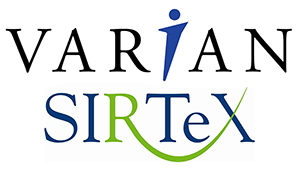 Sirtex Medical (ASX:SRX) said today that it’s fielding an unsolicited, $1.41 billion counter-offer from China’s CDH Investments that trumps a previous, $1.28 billion bid from Varian Medical (NYSE:VAR) that’s already won approval from U.S. and German regulators.
Sirtex Medical (ASX:SRX) said today that it’s fielding an unsolicited, $1.41 billion counter-offer from China’s CDH Investments that trumps a previous, $1.28 billion bid from Varian Medical (NYSE:VAR) that’s already won approval from U.S. and German regulators.
CDH’s A$33.60-per-share offer is a 20% premium on Varian’s initial A$28-per-share offer and prompted Sirtex to seek to scuttle a meeting slated for May 7 about that merger. In March U.S. antitrust authorities and the German Federal Cartel Office cleared the Varian-Sirtex union, which was announced in January and was slated to close this month.
But today the Australian company said it’s examining the CDH Investments proposal and plans to enter the due diligence process with the CHinese alternative asset fund manager. CDH has more than $20 billion under management, Sirtex said.
“At this time, the directors of Sirtex continue to believe the existing scheme of arrangement with Varian is in the best interests of Sirtex shareholders and continue to unanimously support and recommend the scheme,” the company said in a press release.
“The Varian scheme has been unanimously approved by both boards of directors, has fully committed financing and has received all necessary regulatory approvals. We believe the Varian scheme offers more value and carries far less risk for Sirtex stockholders,” added Varian president & CEO Dow Wilson. “We stand ready to complete the acquisition following the receipt of Sirtex stockholders’ approval and the satisfaction of other closing conditions. We look forward to welcoming our new Sirtex colleagues to Varian.”
Sydney-based Sirtex makes a resin microsphere, SIR-Sphere Y-90, designed to deliver radiation therapy to liver cancers. Last year, shares in the Australian cancer therapy developer plunged after it posted a net loss of -A$26.9 million in 2016, compared to a profit of A$54 million the year before.
Sirtex faced an array of obstacles last year, including a number of clinical trials that failed to meet primary endpoints.
A “general uptick in competition for patients with liver-directed therapies and a generally tighter reimbursement environment” was partly to blame for what CEO Andrew McLean described as a “challenging” year, according to the company.

